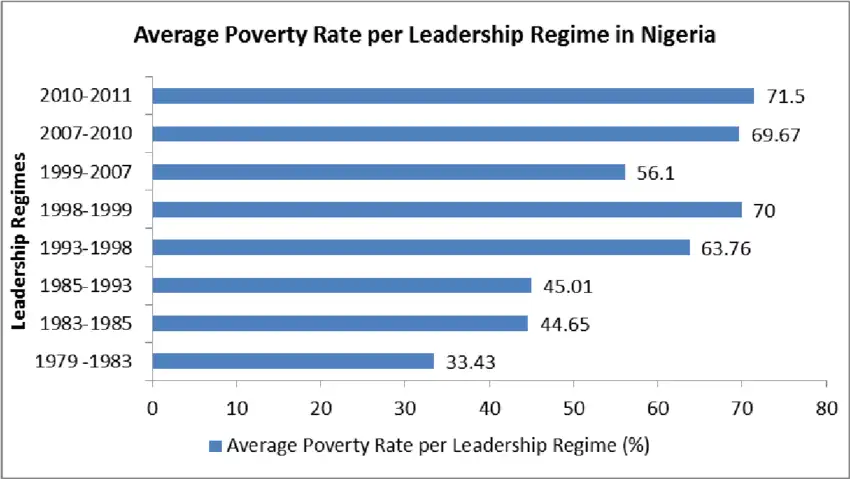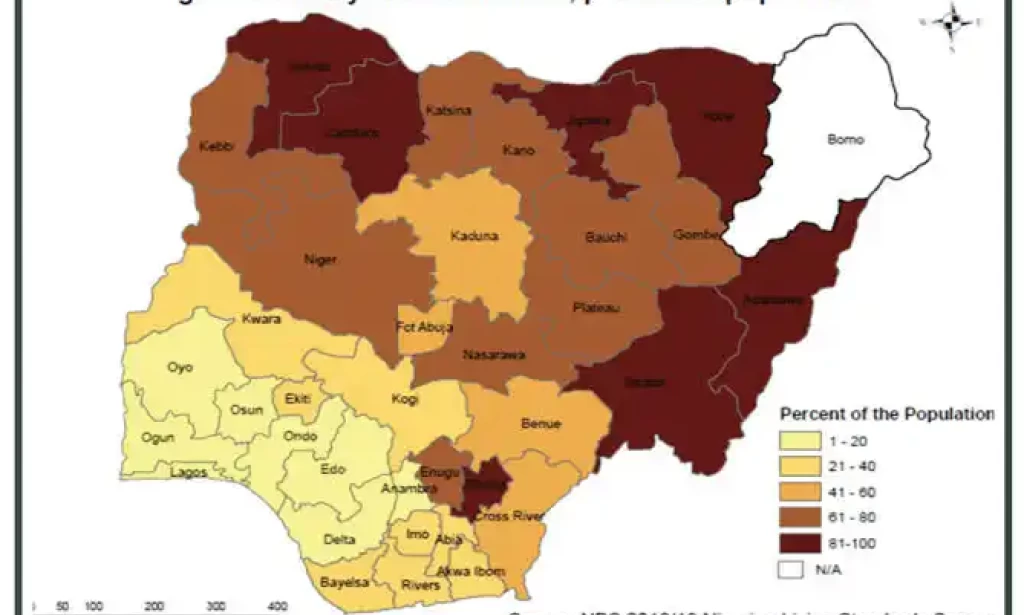Nigeria is a country with a high rate of poverty, despite being one of the largest economies in Africa. There are several reasons for this, including:

1. Corruption: Corruption is a major problem in Nigeria, with many public officials using their positions for personal gain. This has led to a lack of investment in public infrastructure and services, which has contributed to the high rate of poverty.
2. Lack of infrastructure: Nigeria has a poor infrastructure, with many areas lacking access to basic amenities such as electricity, clean water, and healthcare. This has made it difficult for people to access education and job opportunities, which has contributed to the high rate of poverty.
3. Unemployment: Nigeria has a high rate of unemployment, particularly among young people. This has made it difficult for people to find work and support themselves and their families.
4. Inequality: Nigeria has a high level of income inequality, with a small percentage of the population controlling a large percentage of the country's wealth. This has made it difficult for people at the bottom of the income ladder to improve their economic situation.
5. Inadequate social safety nets: Nigeria has a limited social safety net system, which has made it difficult for people to access support when they are in need. This has left many people vulnerable to economic shocks, such as job loss or illness.



You must be logged in to post a comment.